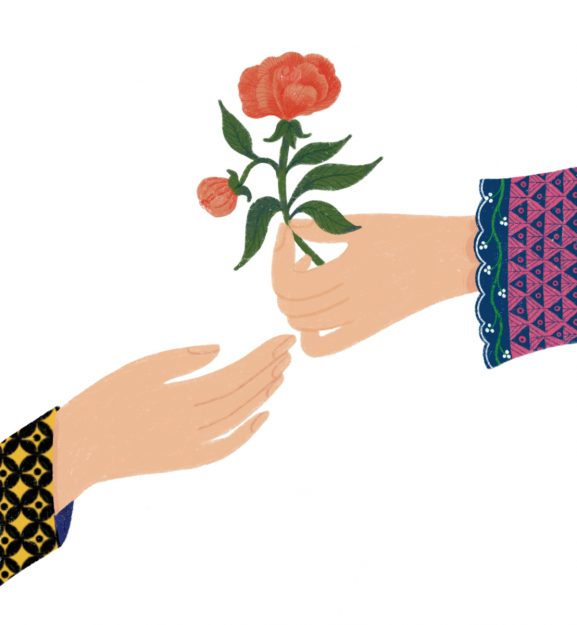The second of the five hindrances is ill will (vyapada), which arises when we carelessly turn our attention to that which provokes our dislike. Although we most readily recognize ill will as hostility, it can also manifest as aversion, causing us to push against or turn away from that which we want to avoid. The result is an agitated, troubled mind.
The sutras say it’s like gazing into a pot of boiling water. As the water churns and seethes, it prevents us from seeing our reflection clearly. Not seeing, we misperceive ourselves and others. Our viewpoint becomes narrow, which leads us to constrict and defend. Therefore, the primary remedy for ill will is to allow the water to become calm by cultivating lovingkindness (metta). We can also meditate on the four immeasurables of lovingkindness, compassion, sympathetic joy, and equanimity, since any of these will cause the feeling of ill will to dissipate. Although we’re all capable of holding conflicting emotions, it’s actually impossible to be simultaneously hostile and loving in our thoughts. Metta is the primary antidote for ill will and the confusion that accompanies it, because it truly is like the rays of the sun, as the Buddha said. It radiates, illuminating everything in its path.
- Tip: The first step in working with ill will is to look at it closely. The most challenging aspect of ill will—or any of the other hindrances—is that it’s intoxicating. A part of us wants to be hostile—which means we must make room for the part of us that would rather be free. Stop, look, and wait. Then watch as ill will, unheeded, fades.

- “An aspect of investigating ill will is to discover the beliefs that support it. Why do we believe it is important or pertinent to remain with these thoughts and motivations? How might we believe that aversion will benefit us? Why might we believe that ill will is justified?” –Gil Fronsdal
- “Keep in mind that the layers of conditioning on a person have made them difficult to handle, just like the layers of dirt on a cloth. Perhaps they have faced hardship unknown to us. . . . What matters is that we see that someone is suffering. We can offer them our loving-friendliness.” –Bhante Gunaratana

- Tip: If you feel yourself caught in a loop of aversion or hostility, try turning to a friend for help. Good friendship can be a powerful balm for our negativity. A noble friend can help us gain perspective or simply listen attentively as we acknowledge our struggle. They can remind us that whatever we’re going through will pass.
- “We must find a way to abandon the hindrance of ill will directly, without waiting until circumstances change and we get the justice, retribution, or redemption we’ve been craving. We have to work on ourselves.” –Domyo Burk
♦
This is the second installment of our series on the five hindrances—sensual desire, ill will, sloth/torpor, anxiousness, and doubt—and their respective antidotes. A printable version is available here.
Thank you for subscribing to Tricycle! As a nonprofit, we depend on readers like you to keep Buddhist teachings and practices widely available.
